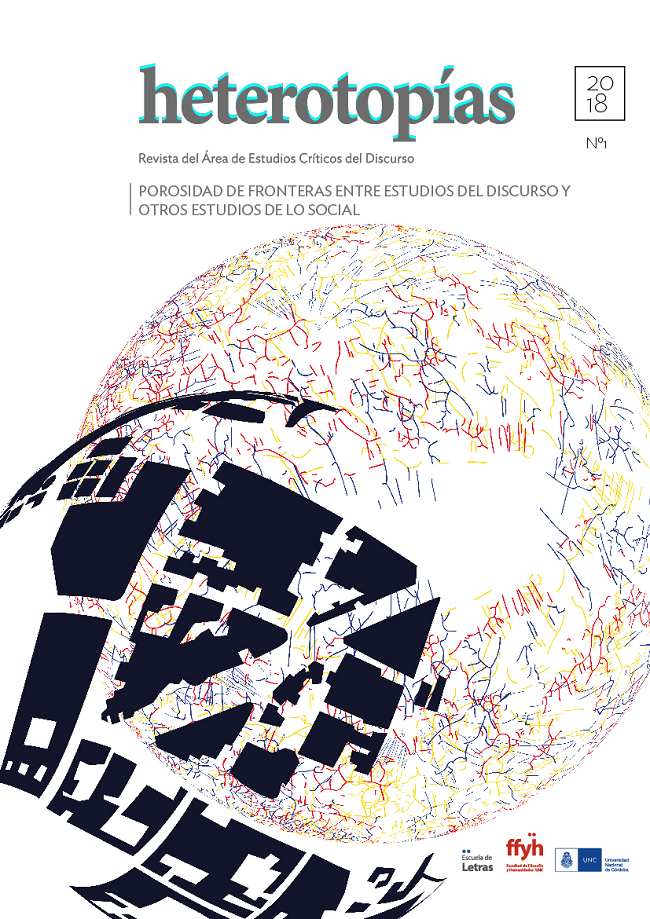Postales del infierno. ¿crisis humanitaria o nuevo modelo de soberanía? Preguntas a propósito de las travesías migrantes en las fronteras europeas
Main Article Content
Abstract
Discussions in biopolitics have gone largely through a withdrawal or return of a social ontology, litigating with the foucaultian thesis according to which the only possible ontology is present time. Derived from that record, Agamben and Esposito proposals call for thinking how to constitute the political issue in the light of the reconstruction of the event, which in the context of the opened proceedings long time ago at the European borders, defined as migratory crisis, impels to recreate some political-philosophical interpellations to the current social order.
Assuming the interesting provocation according to which work a porosity on the borders between the discourse and other social studies, we placed our attention thinking from the biopolitical record how the principle of sovereignty from States lionized by the critical stage of the Spanish borders of Ceuta and Melilla and Lampedusa, Italy, where hundreds of afro-arabian migrants weekly attempt to trespass the fences and the sea if achieve it, they separating them from a long and painful existence in their origin countries, flagellated by incessant wars and poverty.
The text we present here focuses on tender from the biopolitical grammar questions and reflections on governmentality putting in question the redefinition of the bond between life and politics, official speeches wield to justify the drastic measures on behalf of the defense of sovereignty.
Then we open around the crossroads between biological language, legal and political, by which human life is governed, some signs to put in check the idea of sovereignty opposed to that of justice that rises after the nomination of migration crisis, as opposed to the humanitarian crisis, which refers to this process that coagulates unique manners of denial and protection of life at European borders, particularly during the last three years.
Downloads
Article Details
Those authors who have publications with this journal, accept the following terms: Those authors who have publications with this journal, accept the following terms:
a. The authors will keep their copyright and guarantee to the journal the right of first publication of their work, which will be simultaneously subject to the Creative Commons Attribution - Non-Commercial - Share Alike (by-nc-sa) Attribution License; no commercial use of the original work or any derivative works is allowed, the distribution of which must be done with a license equal to the one that regulates the original work.
b. Authors may adopt other non-exclusive license agreements for the distribution of the published version of the work (e.g., deposit it in an institutional telematic archive or publish it in a monographic volume) provided that the initial publication in this journal is indicated.
c. Authors are allowed and recommended to disseminate their work through the Internet (e.g. in institutional telematic archives or on their website) before and during the submission process, which may lead to interesting exchanges and increase the number of citations of the published work. (See The effect of open access).
How to Cite
References
AGAMBEN, Giorgio. (1998). Homo Sacer. El Poder Soberano y la Nuda Vida I. España: Pre-Textos.
ESPOSITO, Roberto. (2005). Immunitas. Protección y negación de la vida. Buenos Aires – Madrid: Amorrortu editores.
FOUCAULT, Michel. (2006). Seguridad Territorio, Población. Buenos Aires: F.C.E.
FOUCAULT, Michel. (1997). Il faut défendre la société: Cours au Collège de France (1975- 1976). París: Gallimard/Seuil.
HABERMAS, Jurgen. (2000). La constelación posnacional. Barcelona: Ediciones Paidós.
PONCE, Elsa. (2016). "La biopolítica en el panorama filosófico contemporáneo". Seminario Departamental de Filosofía. Departamento de Filosofía. Universidad de Oviedo, Asturias (inédito).
